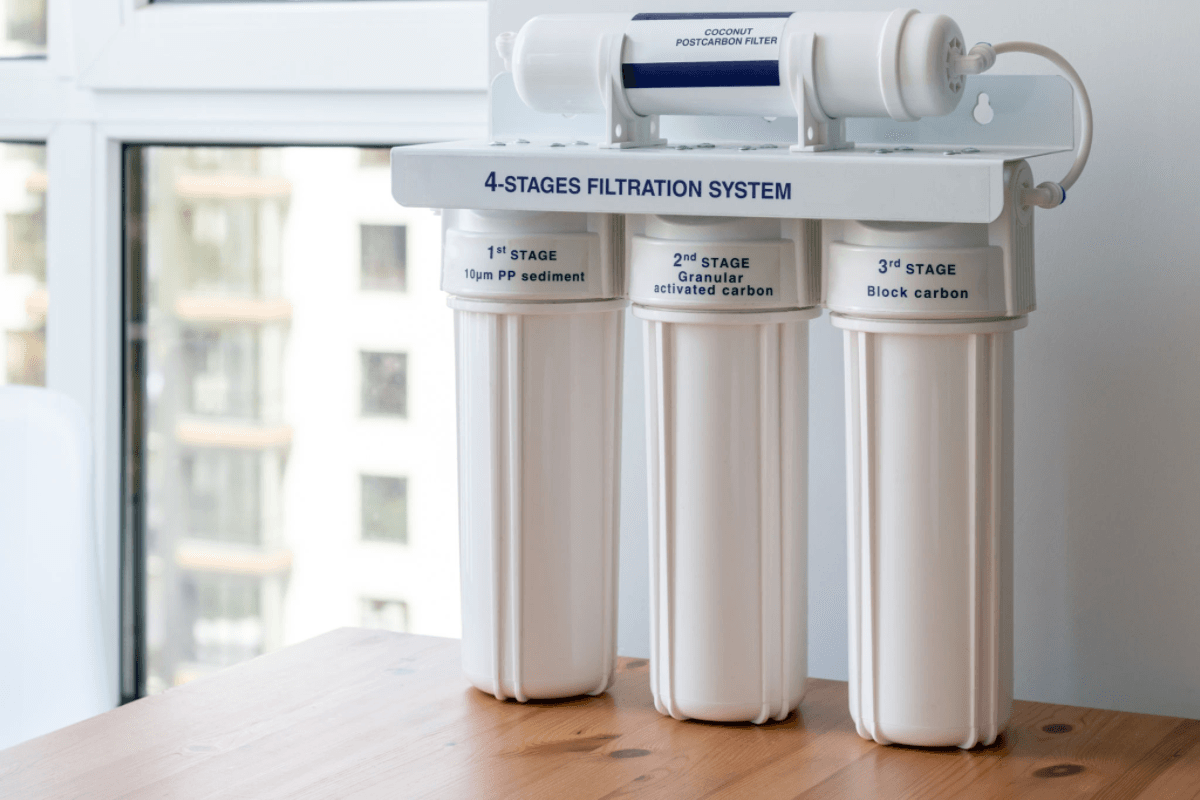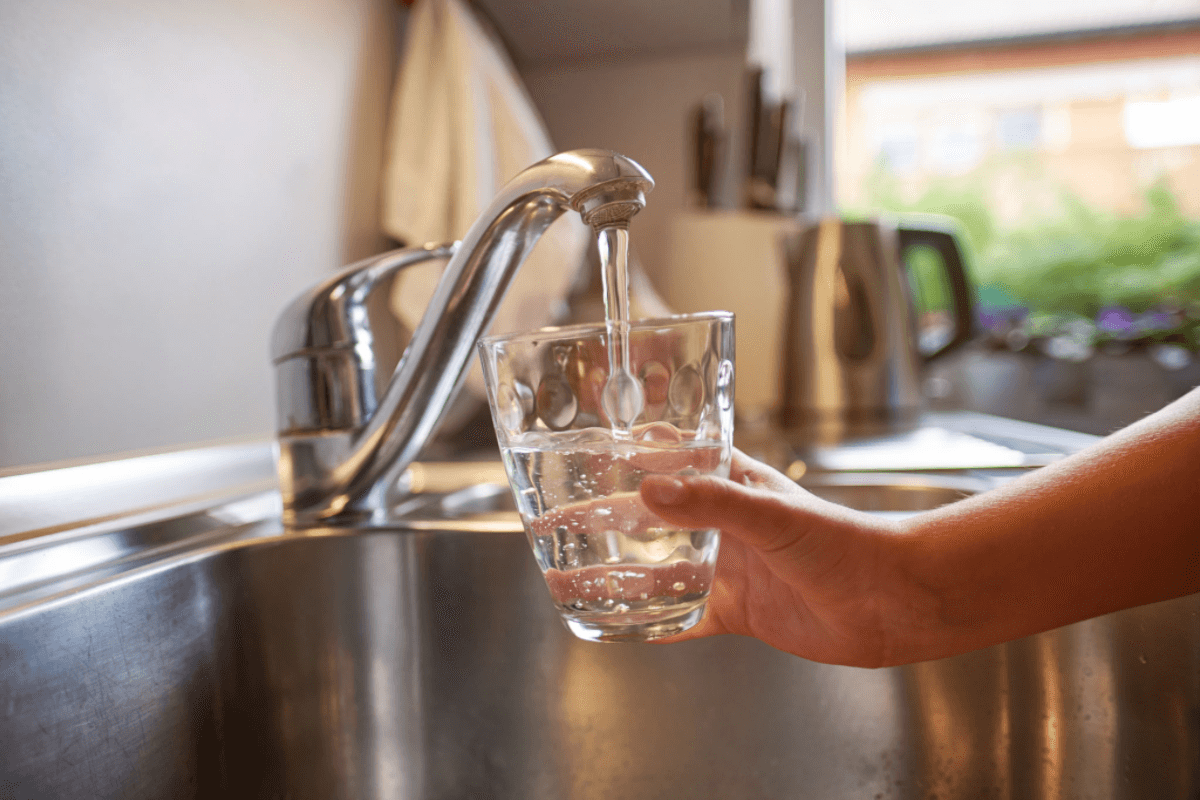In rural areas like Woodville, Texas, ensuring water purity is a critical concern. With over 30 years of service to our community, Service by Scott understands the unique challenges faced by rural homeowners. This guide explores water treatment options for rural homes, offering insights into various systems tailored to address specific rural water supply needs.
At Service by Scott, we know that each home is unique. Whether you rely on a well, contend with hard water, or seek overall water quality improvement, we’re here to assist. Join us as we navigate through different water treatment solutions, their functionalities, and essential considerations for making informed choices. Your family’s well-being is our priority, and we believe that informed decisions about water treatment can significantly impact your household’s health and longevity.
Well Water Filtration Systems
For many rural homeowners, relying on a well for their water supply is a way of life. While wells offer independence, they also present unique challenges, particularly in maintaining water quality. Well water can be susceptible to various contaminants, ranging from sediment to bacteria. This is where well water filtration systems come into play, acting as guardians of your family’s health and the longevity of your plumbing infrastructure.
Understanding Well Water Contaminants
The first step in addressing well water quality is understanding the potential contaminants. Well water can contain sediments, minerals, and even harmful microorganisms. These impurities not only affect the taste and odor of the water but, more importantly, can pose health risks if left untreated. Service by Scott recognizes the significance of water testing to identify specific contaminants, allowing for the selection of an appropriate well water filtration system tailored to your needs.
Types of Well Water Filtration Systems
Well water filtration is not a one-size-fits-all solution. Different systems cater to specific contaminants and water quality issues. Common types include sediment filters, activated carbon filters, and reverse osmosis systems. Each system has its strengths and applications.
Installation and Maintenance Tips
Installing a well water filtration system requires expertise to ensure it integrates seamlessly with your well setup. Service by Scott not only provides expert installation but also emphasizes the importance of regular maintenance. Filters need periodic replacement to maintain peak efficiency. Our team offers guidance on monitoring filtration system performance and schedules maintenance to safeguard the continuous delivery of clean, high-quality well water to your rural home.

Reverse Osmosis Systems
In the realm of advanced water purification, Reverse Osmosis (RO) stands out as a formidable solution, especially beneficial for rural homes facing water quality challenges. This section explores how RO systems work, the advantages they offer, and crucial considerations when choosing the right system for your specific needs.
How Reverse Osmosis Works
Reverse Osmosis is a water treatment process that relies on a semi-permeable membrane to remove impurities. As water passes through this membrane, contaminants such as bacteria, minerals, and pollutants are filtered out, leaving you with clean and purified water. Service by Scott recognizes the efficacy of RO systems in addressing a wide range of water quality issues, making them a popular choice for rural homeowners seeking reliable water purification.
Benefits of Reverse Osmosis for Rural Homes
One of the primary benefits of RO systems is their ability to eliminate various contaminants, including heavy metals, chemicals, and microorganisms, providing a comprehensive solution for improving water quality. Additionally, RO systems enhance the taste and odor of water, ensuring a refreshing and enjoyable experience. Service by Scott emphasizes the importance of tailoring RO systems to the unique water composition of rural areas, ensuring maximum efficiency in purifying well water.
Choosing the Right Reverse Osmosis System
Selecting the appropriate RO system involves considering factors such as water usage, contaminant levels, and available space. Service by Scott’s expertise in water treatment allows us to guide rural homeowners through the selection process. We assess your specific needs, recommend the most suitable RO system, and handle the installation with precision. Our goal is to empower you with a reliable and efficient solution for consistently clean and pure water in your rural home.
Water Softening Systems
In many rural areas, hard water is a prevalent issue that can impact both the functionality of plumbing systems and the overall quality of water in homes. Water softening systems emerge as a key solution to combat the adverse effects of hard water. This section explores the intricacies of hard water, the benefits of water softeners, and the different types of water softening systems available.
Dealing with Hard Water in Rural Areas
Hard water contains elevated levels of minerals, predominantly calcium and magnesium, which can lead to limescale buildup in pipes and appliances. Beyond causing plumbing issues, hard water can affect the efficiency of soap and detergent, leaving residue on dishes and clothes. Service by Scott recognizes the challenges posed by hard water in rural homes and emphasizes the significance of water-softening systems in mitigating these effects.
Benefits of Water Softeners
Water softening systems offer a range of benefits, including the prevention of limescale buildup, increased efficiency of water heaters and appliances, and the improvement of soap lathering. Softer water not only enhances the lifespan of plumbing systems but also contributes to a smoother, more enjoyable household experience. Service by Scott can recommend water softeners that align with your specific requirements.
Different Types of Water Softening Systems
Various water softening systems cater to different needs and preferences. Common types include ion-exchange (salt-based) water softeners, salt-free water conditioners, and magnetic water softeners. Each system employs distinct mechanisms to reduce the concentration of minerals in water. Service by Scott guides rural homeowners in selecting the most suitable water softening system based on water hardness levels, budget considerations, and environmental preferences.

UV Water Purifiers
In the quest for comprehensive water purification, Ultraviolet (UV) water purifiers have emerged as a powerful technology, particularly effective in eliminating harmful microorganisms. This section delves into the functionality of UV purifiers, their benefits, and considerations for integrating them into your rural water treatment system.
Eliminating Microorganisms in Rural Water
Rural water sources, including wells, can be susceptible to microbial contamination. UV water purifiers utilize ultraviolet light to target and neutralize bacteria, viruses, and other microorganisms present in the water. This method ensures that your water is not only free from visible impurities but also from potential health hazards associated with microbial contamination.
How UV Purifiers Work
UV water purifiers operate by exposing water to ultraviolet light, which damages the DNA of microorganisms, rendering them incapable of reproduction. This process effectively eliminates the risk of waterborne diseases without introducing any chemicals or altering the water’s taste and odor. UV purification is a reliable and chemical-free solution, making it a preferred choice for those seeking a minimalist yet effective water treatment approach.
Considerations for UV Water Purification
While highly effective, UV water purifiers require careful consideration for optimal performance. Factors such as water flow rate, UV dose, and pre-filtration should be taken into account during installation. Additionally, periodic maintenance, including bulb replacement, is essential to ensure continuous effectiveness. Understanding these considerations ensures that you harness the full potential of UV water purifiers in safeguarding the health of your rural household.
Activated Carbon Filters
In the pursuit of purifying water and enhancing its quality, activated carbon filters emerge as a versatile and effective solution, particularly valuable for rural homes facing various water impurities. This section delves into the mechanisms of activated carbon filtration, its applications, and key maintenance considerations.
Removing Impurities with Carbon Filtration
Activated carbon filters excel in removing a broad spectrum of impurities from water, including chlorine, sediments, volatile organic compounds (VOCs), and unpleasant odors. By employing a porous carbon structure, these filters effectively trap and adsorb impurities, resulting in cleaner, better-tasting water. Rural homeowners often find activated carbon filtration essential for addressing diverse water quality challenges.
Applications and Effectiveness
Activated carbon filters find wide-ranging applications in both municipal and well water treatment. They are particularly effective in enhancing the taste and odor of water, making it more palatable for consumption. Additionally, these filters contribute to the reduction of potentially harmful contaminants, providing an added layer of protection for your household. Understanding the specific impurities present in your water allows for the selection of the most suitable activated carbon filter, ensuring optimal performance.
Maintenance and Replacement Guidelines
To maintain the effectiveness of activated carbon filters, regular maintenance is crucial. Over time, the pores of the carbon structure can become saturated with impurities, diminishing their filtering capacity. It’s essential to follow manufacturer guidelines for filter replacement intervals. Service by Scot recommends a routine inspection schedule to assess the condition of the filters and ensure that your water treatment system continues to deliver clean and high-quality water to your rural home.
Whole-House Water Filtration
For comprehensive water treatment in rural homes, a whole-house water filtration system stands as a pinnacle of efficiency. This section delves into the significance of whole-house filtration, its advantages, and key considerations for installation and maintenance.
Comprehensive Water Treatment for Rural Homes
A whole-house water filtration system is designed to treat water at the point of entry into your home, ensuring that every tap delivers clean and purified water. This holistic approach addresses the diverse impurities that may be present in both well and municipal water sources, providing a consistent and high-quality water supply throughout your household.
Advantages of Whole-House Systems
The primary advantage of a whole-house water filtration system lies in its ability to address various contaminants on a large scale. From sediments to chemicals, these systems offer comprehensive filtration, safeguarding not only your drinking water but also water used for bathing, cooking, and household chores. Additionally, whole-house systems contribute to the protection and longevity of plumbing fixtures and appliances.
Installation and Maintenance Considerations
Installing a whole-house water filtration system requires careful planning and expertise. Factors such as water flow rate, filter size, and the specific contaminants present in your water should be considered. Professional installation ensures that the system integrates seamlessly with your plumbing infrastructure. Regular maintenance, including filter replacements, is essential to uphold the system’s efficiency over time. Service by Scott offers routine check-ups to guarantee the continued delivery of clean and purified water to every corner of your rural home.

Conclusion
In the journey to secure clean and safe water for your rural home, we’ve explored a myriad of water treatment options, each tailored to address specific challenges. From well water filtration systems to advanced whole-house solutions, the key takeaway is clear: informed decisions about water treatment can significantly impact the health and longevity of your household.
Understanding the unique characteristics of your water source, whether it be a well or municipal supply, empowers you to choose the most effective system. Well water filtration tackles specific contaminants, reverse osmosis ensures comprehensive purification, water softening systems combat the effects of hard water, UV purifiers eliminate harmful microorganisms, and activated carbon filters address a broad spectrum of impurities. For a holistic approach, whole-house water filtration stands as a beacon of efficiency, delivering clean and purified water to every faucet in your home.
As you embark on the path to enhancing your water quality, Service by Scott stands ready to be your trusted partner. With over 30 years of dedicated service to Woodville, Texas, and neighboring areas, we bring unparalleled expertise to every water treatment challenge. Our commitment to your family’s well-being extends beyond installations; we offer ongoing support and maintenance to ensure your water treatment system operates at peak efficiency.
Make the choice that transcends clean water — choose the assurance of Service by Scott. today to discuss your water treatment needs, schedule a consultation, and embark on a journey toward a healthier and more vibrant rural home. Your family deserves the best, and Service by Scott is here to deliver it.
FAQs
What water treatment system is best for well water?
The best water treatment system for well water depends on the specific contaminants present. Well water filtration systems are effective for sediment and microbial issues, while water softeners are ideal for combating hard water. A thorough water test can guide you in selecting the most suitable system for your well.
How often should I replace filters in my water treatment system?
Filter replacement frequency varies based on the type of system and water conditions. As a general guideline, check and replace filters every 3 to 6 months. However, more frequent replacements may be necessary in areas with high levels of contaminants or heavy water usage.
Can I install a water treatment system myself?
While some water treatment systems come with DIY installation options, it’s advisable to seek professional assistance, especially for complex systems like whole-house filtration or reverse osmosis. Professional installation ensures proper integration with your plumbing and optimal system performance.
Are water softeners suitable for all types of plumbing systems?
Yes, water softeners are compatible with most plumbing systems, including copper, PVC, and PEX. However, the specific type of water softener and its installation may vary based on your plumbing configuration. Consult with a professional to determine the best fit for your home.
Do water treatment systems require regular maintenance?
Yes, regular maintenance is crucial for the efficient operation of water treatment systems. This includes periodic filter replacements, system checks, and, if applicable, UV bulb replacements.

